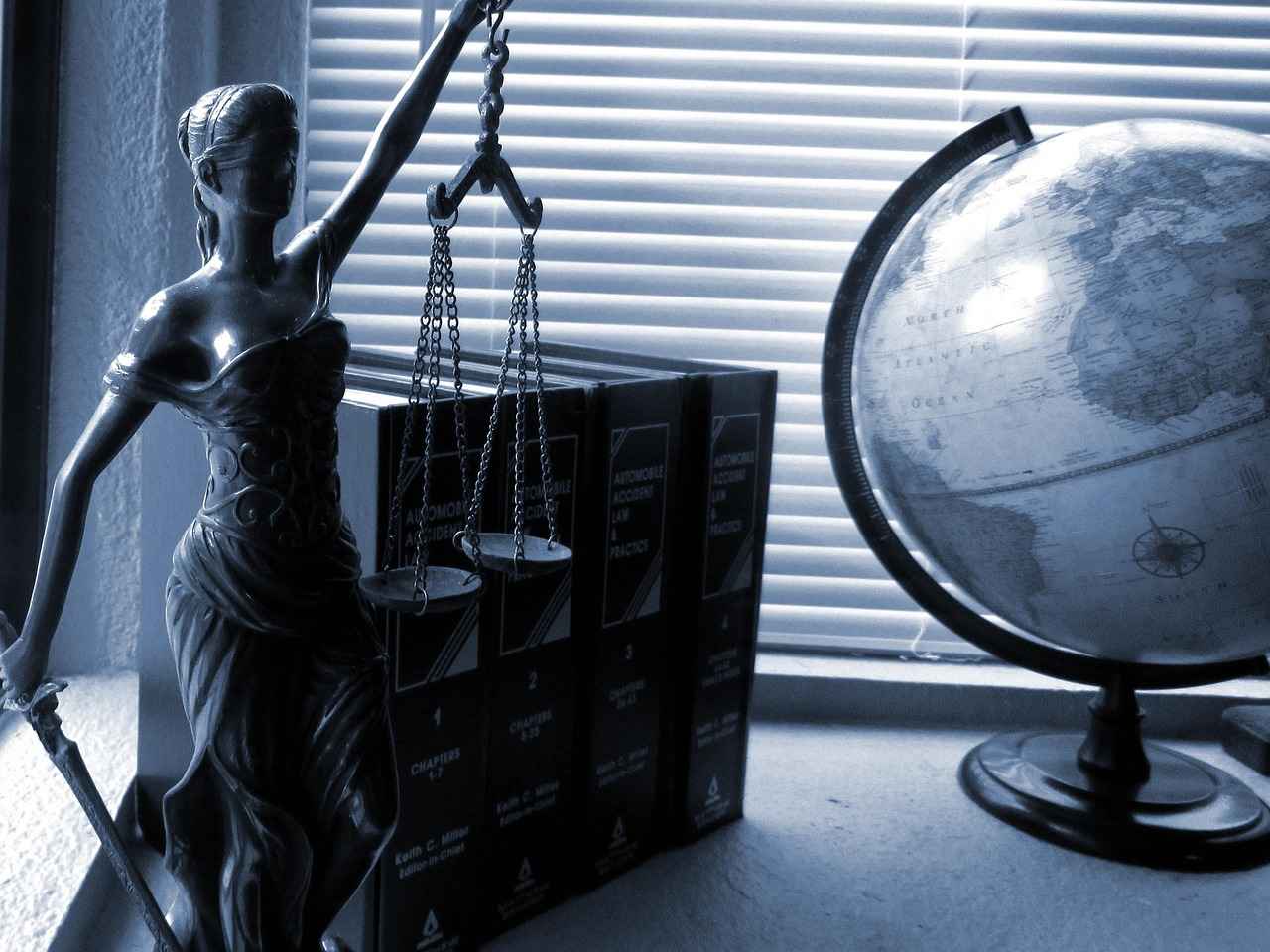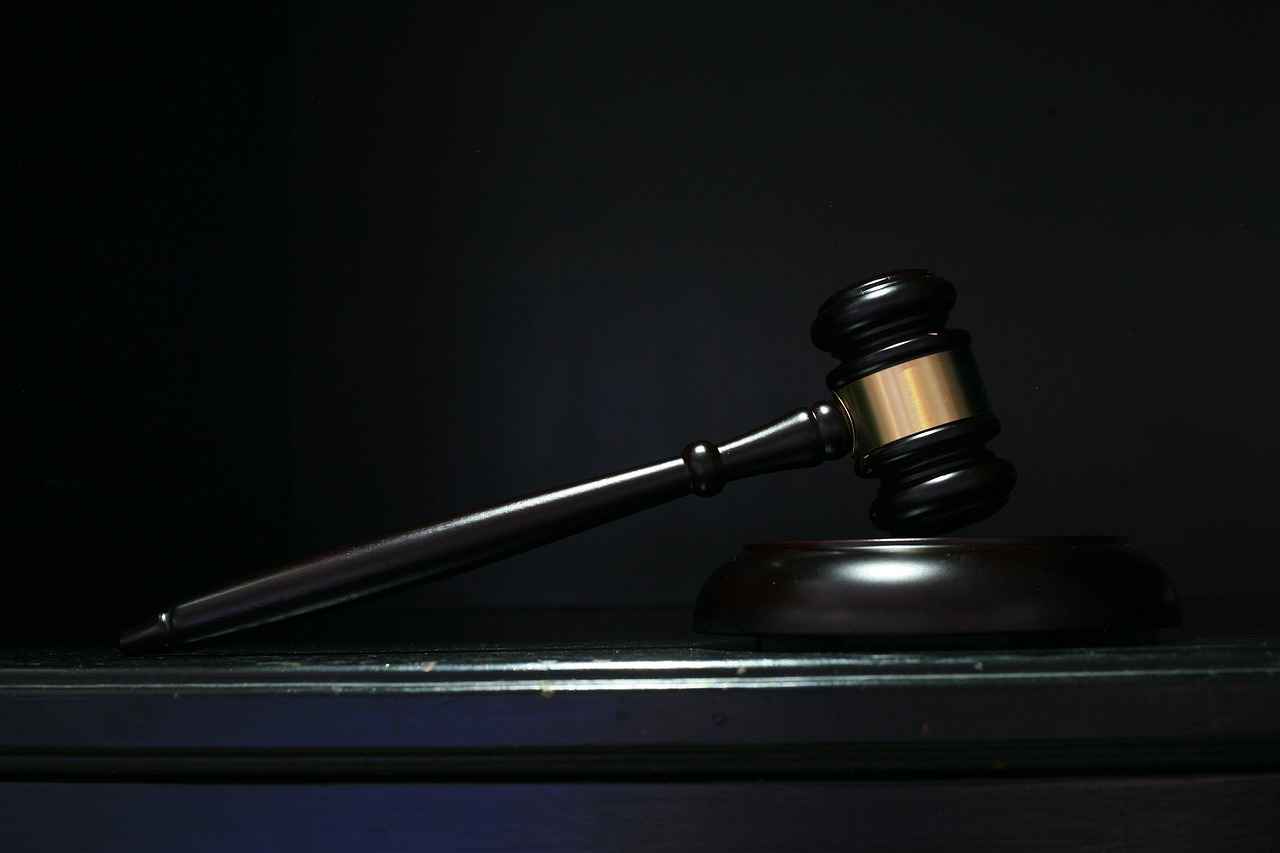This article explores the most common types of legal cases in the U.S. and provides expert guidance on finding qualified attorneys in San Diego, California. The legal landscape can be complex and daunting, but understanding the types of cases and how to find the right attorney can make a significant difference in the outcome of your situation.
Understanding Common Legal Cases
- Personal Injury: These cases arise when individuals suffer harm due to another’s negligence, such as in car accidents or slip-and-fall incidents.
- Medical Malpractice: Involves negligence by healthcare professionals, requiring attorneys with specialized knowledge in medical law.
- Breach of Contract: Occurs when one party fails to meet their contractual obligations; a lawyer specializing in contract law can provide essential guidance.
- Property Disputes: Often related to land use or ownership issues, necessitating the expertise of a real estate attorney.
- Landlord-Tenant Disputes: These can involve lease agreements or eviction processes; knowing your rights is crucial.
- Defamation: Involves libel and slander cases that damage reputations; a media law expert is often needed.
- Employment Disputes: Encompasses wrongful termination and discrimination cases, requiring the guidance of an employment law attorney.
- Product Liability: Holds manufacturers accountable for defective products; a specialized lawyer can navigate complex litigation.
- Wrongful Death: Arises from negligence leading to death; finding a compassionate attorney is vital.
- Class Action Lawsuits: Allows groups to sue for similar grievances; understanding the process is essential.
- Assault and Battery: Involves serious criminal charges; a defense attorney is crucial.
- Drug Offenses: Covering a range of crimes, hiring an attorney experienced in drug law is critical.
- Theft and Burglary: Involves unlawful property taking; an experienced criminal lawyer can defend effectively.
- Fraud and Embezzlement: Involves financial deception; finding a white-collar crime expert is essential.
- Murder and Homicide: These serious charges require an experienced criminal defense attorney.
- DUI/DWI: Charges can lead to significant penalties; a skilled attorney can help minimize consequences.
- Domestic Violence: Involves serious allegations; knowledgeable legal representation is crucial.
- Cybercrime: As technology evolves, so do crimes; hiring an attorney with expertise in this field is important.
- Divorce and Family Law: Including child custody and support, finding an attorney with family law experience is vital.
- Immigration Cases: Navigating immigration law requires specialized knowledge and experience.
- Bankruptcy: Understanding your rights and options is essential; a bankruptcy attorney can guide you through the process.
- Federal Tax Disputes: These cases can be complex; hiring a tax attorney is advisable.
- Civil Rights Violations: Protecting individual rights requires an attorney experienced in civil rights law.
Finding Qualified Attorneys in San Diego
When searching for a qualified attorney, consider the following proven methods:
- Referrals: Ask friends, family, or colleagues for recommendations based on their experiences.
- Online Directories: Use platforms like Avvo, FindLaw, or the American Bar Association’s directory to search for attorneys by specialty.
- Consultation: Schedule initial consultations to discuss your case and assess the attorney’s approach and expertise.
- Check Credentials: Look for attorneys with relevant experience, licenses, and certifications in their specialty area.
- Read Reviews: Online reviews and testimonials can provide insights into an attorney’s reputation and success rate.
Red Flags to Avoid
- Lack of Communication: An attorney who is difficult to reach or unresponsive may not prioritize your case.
- Unclear Fee Structures: Ensure you understand how the attorney charges for their services to avoid unexpected costs.
- No Specialization: Avoid attorneys who lack specific experience in the area of law relevant to your case.
By understanding the types of legal cases and following these guidelines, individuals can find the most qualified and trustworthy attorneys in San Diego, California, or any major metropolitan area across the United States.

Understanding Personal Injury Cases
Personal injury cases represent a significant portion of the legal landscape in the United States. These cases arise when an individual suffers harm due to the negligence or wrongful actions of another party. The implications of personal injury can be profound, affecting not only the physical well-being of the victim but also their financial stability and emotional health.
When seeking a lawyer for a personal injury case, it is essential to consider several key factors:
- Experience: Look for an attorney who specializes in personal injury law and has a proven track record of successful cases. An experienced lawyer understands the nuances of the legal system and can navigate complex issues effectively.
- Reputation: Research online reviews and testimonials from past clients. A lawyer with a strong reputation is likely to provide better service and outcomes.
- Communication: Choose an attorney who communicates clearly and promptly. You should feel comfortable discussing your case and asking questions throughout the process.
- Contingency Fees: Many personal injury lawyers work on a contingency fee basis, meaning they only get paid if you win your case. This arrangement can alleviate financial pressure while pursuing your claim.
- Resources: A well-established law firm will have the resources necessary to investigate your case thoroughly, including access to medical experts and accident reconstruction specialists.
Furthermore, it is crucial to be aware of red flags during your search:
- High Pressure Tactics: Be cautious of lawyers who pressure you to sign contracts immediately or make hasty decisions.
- Lack of Transparency: If an attorney is not forthcoming about their fees or the process, consider it a warning sign.
- Limited Experience: Avoid lawyers who lack specific experience in personal injury cases, as they may not understand the complexities involved.
In summary, finding the right lawyer for a personal injury case involves careful consideration of their experience, reputation, communication style, fee structure, and available resources. By being diligent and informed, you can increase your chances of achieving a favorable outcome in your case.

Medical Malpractice: What You Need to Know
Medical malpractice is a serious issue that arises when healthcare professionals fail to provide the standard of care expected in their field, resulting in harm to patients. This negligence can take many forms, including misdiagnosis, surgical errors, improper medication, and lack of informed consent. Understanding the complexities of medical malpractice is crucial for anyone who believes they have been a victim of such negligence.
When pursuing a medical malpractice case, it is essential to have a lawyer who specializes in medical law. This specialized knowledge can greatly influence the success of your case. A qualified attorney will not only understand the legal framework surrounding medical malpractice but also the medical nuances involved. They will be able to consult with medical experts to establish the standard of care that should have been provided and demonstrate how that standard was breached.
Finding the right attorney can be a daunting task, especially in a bustling city like San Diego. Here are some practical steps to help you in your search:
- Research and Referrals: Start by asking for referrals from friends, family, or other professionals. Online platforms like Avvo and FindLaw can also provide listings and reviews of attorneys in your area.
- Check Credentials: Look for attorneys with specific experience in medical malpractice. This includes reviewing their education, years of practice, and any certifications in medical law.
- Consultation: Schedule consultations with potential attorneys. Many lawyers offer free initial consultations, which can help you gauge their expertise and approach to your case.
- Track Record: Inquire about their success rate with similar cases. A lawyer who has successfully handled medical malpractice cases will have a better understanding of the challenges involved.
- Communication: Ensure that the attorney communicates clearly and is responsive to your questions. Good communication is essential for a successful attorney-client relationship.
- Red Flags: Be cautious of attorneys who promise guaranteed outcomes or have poor reviews. Trust your instincts if you feel uncomfortable during the consultation.
Medical malpractice cases can be complex and emotionally draining. It is crucial to have a dedicated attorney who will advocate for your rights and work tirelessly to achieve a favorable outcome. With the right legal representation, victims of medical negligence can seek justice and compensation for their suffering.

Breach of Contract: Legal Implications
Breach of contract cases represent a significant aspect of contract law, occurring when one party fails to meet their obligations as outlined in a legally binding agreement. This failure can take various forms, including non-performance, late performance, or inadequate performance. The implications of such breaches can be profound, leading to financial losses and strained relationships. Therefore, hiring a lawyer specializing in contract law becomes essential for navigating these complex issues effectively.
When dealing with a breach of contract, it is crucial to understand the different types of contracts involved, which can range from written agreements to verbal contracts. Each type has its own legal nuances. A skilled attorney can help assess the situation, determine the nature of the breach, and advise on the best course of action. This might involve negotiating a settlement, pursuing damages, or seeking specific performance of the contract.
Finding the right attorney is vital. Here are some practical tips for individuals seeking legal representation in breach of contract cases:
- Research and Referrals: Start by asking for recommendations from friends, family, or colleagues who have had similar experiences. Online reviews and legal directories can also provide insights into a lawyer’s reputation.
- Check Credentials: Look for attorneys with specific experience in contract law. Verify their education, years of practice, and any special certifications related to contract disputes.
- Initial Consultation: Many lawyers offer a free initial consultation. Use this opportunity to gauge their understanding of your case and their approach to resolving it.
- Discuss Fees: Understand the attorney’s fee structure before hiring them. Some may work on a contingency basis, while others may charge hourly rates. Ensure that you are comfortable with the financial arrangement.
- Assess Communication Skills: Effective communication is key in any legal matter. Choose an attorney who listens to your concerns and explains legal concepts in a way that you can understand.
- Evaluate Experience: Consider lawyers who have a proven track record in handling breach of contract cases. Their experience can significantly impact the outcome of your case.
In metropolitan areas like New York City, Los Angeles, and Chicago, the competition among lawyers is intense. Therefore, it is essential to be thorough in your search. Utilize online platforms such as Avvo, FindLaw, and Lawyers.com to compare potential attorneys, read reviews, and access their profiles with detailed information about their practice areas and client feedback.
Additionally, be wary of red flags when selecting a lawyer. Avoid attorneys who make unrealistic promises or guarantees about the outcome of your case. Be cautious of those who pressure you into making quick decisions or who lack transparency regarding their fees and processes. A reputable lawyer will provide clear, honest assessments and empower you to make informed choices.
In conclusion, navigating a breach of contract case can be daunting, but with the right legal representation, you can protect your interests and seek the remedies you deserve. By following the steps outlined above and being diligent in your search for a qualified attorney, you can enhance your chances of achieving a favorable outcome.

Property Disputes: Navigating the Legal Landscape
Property disputes can be a significant source of stress and tension, often leading to prolonged legal battles. These disputes typically arise over issues such as land use, property boundaries, and ownership rights. In a bustling city like San Diego, where real estate is highly sought after, understanding the intricacies of property law is essential for both property owners and potential buyers.
One of the primary reasons for property disputes is boundary disagreements. Neighbors may have differing interpretations of where their property lines lie, leading to conflicts over fences, trees, and other structures. Additionally, land use conflicts can arise when property owners wish to develop their land in ways that may not align with local zoning laws or community standards, creating friction with local authorities or neighboring properties.
Another common issue is ownership disputes, which can occur in various situations, such as inheritance cases, where multiple heirs may claim rights to a property, or in cases of co-ownership where disagreements arise over the management or sale of the property. These conflicts can become complex, requiring thorough legal expertise to navigate.
To resolve these conflicts efficiently, it is crucial to seek the assistance of an experienced real estate attorney. A knowledgeable attorney can provide invaluable guidance on the legal rights and obligations of property owners, helping to mediate disputes and negotiate settlements. They can also represent clients in court if litigation becomes necessary.
When searching for a real estate attorney, consider the following tips:
- Experience: Look for attorneys who specialize in real estate law and have a proven track record in handling property disputes.
- Reputation: Check online reviews and testimonials from past clients. A strong reputation often indicates reliability and competence.
- Consultation: Many attorneys offer free initial consultations. Use this opportunity to discuss your case and gauge their expertise.
- Communication: Choose an attorney who communicates clearly and promptly, ensuring you stay informed throughout the legal process.
- Fees: Understand the attorney’s fee structure upfront to avoid any surprises later on. Some may charge hourly rates, while others may work on a contingency basis.
In conclusion, property disputes can be complex and emotionally charged, but with the right legal representation, individuals can navigate these challenges effectively. By understanding the common causes of property disputes and knowing how to find a qualified attorney, property owners in San Diego can protect their rights and interests.

Landlord-Tenant Disputes: Know Your Rights
Landlord-tenant disputes are a common occurrence in the rental landscape, often arising from issues related to lease agreements, evictions, or property repairs. These disputes can be stressful and confusing for both landlords and tenants, making it essential to understand your rights and responsibilities under the law.
In many cases, disputes may stem from misunderstandings regarding the terms of the lease agreement. It is crucial for both parties to thoroughly review the lease to ensure compliance with its terms. For instance, landlords must provide a safe and habitable living environment, while tenants are expected to pay rent on time and maintain the property. When disagreements arise, it is advisable for both parties to communicate openly and attempt to resolve the issue amicably.
Evictions are another common source of conflict. A landlord may seek to evict a tenant for various reasons, including failure to pay rent or violating lease terms. However, eviction processes must adhere to local laws, which often require landlords to provide proper notice and follow specific legal procedures. Tenants facing eviction should familiarize themselves with their rights, as they may have grounds to contest the eviction if proper procedures were not followed.
Repairs also frequently lead to disputes. Tenants have the right to request necessary repairs to maintain a safe living environment, while landlords are obligated to address these requests in a timely manner. If a landlord fails to make repairs, tenants may have the right to withhold rent or take other legal actions. Understanding these rights can empower tenants to advocate for themselves effectively.
To navigate landlord-tenant disputes successfully, finding a knowledgeable attorney is essential. Here are some steps to consider when searching for legal representation:
- Research Local Attorneys: Start by searching for attorneys who specialize in landlord-tenant law in your area. Websites like Avvo and FindLaw provide directories of lawyers along with reviews and ratings.
- Check Credentials: Look for attorneys with experience in landlord-tenant disputes. Verify their education, years of practice, and any relevant certifications.
- Consult Initial Meetings: Many attorneys offer free consultations. Use this opportunity to discuss your case and gauge their expertise and communication style.
- Ask About Fees: Understanding how an attorney charges for their services is crucial. Some may work on a flat fee basis, while others charge hourly rates. Ensure you are comfortable with the fee structure before proceeding.
- Seek Recommendations: Personal referrals from friends, family, or colleagues can lead you to trustworthy attorneys. Additionally, consider checking online reviews for further insights.
- Trust Your Instincts: It’s vital to feel comfortable with your attorney. Choose someone who listens to your concerns and communicates clearly.
In conclusion, landlord-tenant disputes can be complex and emotionally charged. Understanding your rights and responsibilities is the first step toward resolving these issues. By engaging a qualified attorney, you can navigate the legal landscape more effectively, ensuring that your interests are protected whether you are a landlord or a tenant.

Defamation: Libel vs. Slander
Defamation is a serious legal issue that involves making false statements that harm an individual’s or entity’s reputation. In the United States, defamation is categorized into two main types: libel and slander. Understanding the differences between these two forms is crucial for anyone considering legal action.
Libel refers to defamatory statements that are made in a fixed medium, primarily in writing or through visual representations. This can include articles, books, online posts, or any other published material. Since libelous statements are permanent, they often carry a heavier burden of proof and can lead to significant damages if proven true.
Slander, on the other hand, involves oral statements that are defamatory. These statements are typically made in person or through spoken communication, such as speeches or conversations. While slander is often seen as less damaging than libel due to its transient nature, it can still result in serious harm to a person’s reputation, especially if the statements are made in public or to a large audience.
When facing a defamation case, it is essential to select a lawyer who specializes in media law or defamation law. An experienced attorney will understand the nuances of both libel and slander, including the legal standards that must be met to prove defamation. They can help you gather evidence, such as witness statements or documentation, to support your claim.
In addition to legal expertise, you should also look for an attorney with a proven track record of successfully handling defamation cases. This can be assessed through client testimonials, case results, and their reputation within the legal community. Furthermore, it is advisable to choose an attorney who is well-versed in the specific laws of your state, as defamation laws can vary significantly across jurisdictions.
It is also important to be aware of potential red flags when hiring a defamation attorney. For example, be cautious of lawyers who guarantee a specific outcome or who lack transparency about their fees and billing practices. A reputable attorney will provide a clear outline of their services and the associated costs upfront.
Finding the right legal representation for a defamation case can make a significant difference in the outcome of your situation. By focusing on experience, credentials, and a solid understanding of media law, you can better protect your rights and pursue the justice you deserve.

Employment Disputes: Protecting Your Rights
Employment disputes can arise in various forms, including wrongful termination, discrimination, and harassment. These issues not only affect an employee’s livelihood but can also have lasting emotional and psychological impacts. Understanding your rights and the legal landscape surrounding employment law is essential for anyone who finds themselves in such a situation.
When faced with an employment dispute, it is crucial to seek the assistance of an attorney specializing in employment law. Such professionals possess the knowledge and experience necessary to navigate the complexities of labor regulations and can provide invaluable guidance throughout the process.
One of the first steps in addressing an employment dispute is to document all relevant information. This includes keeping records of communications with your employer, performance reviews, and any incidents that may have contributed to the dispute. Having a detailed account can significantly bolster your case and provide your attorney with the necessary information to advocate on your behalf.
Additionally, understanding the specific laws that apply to your situation is vital. For instance, federal laws such as the Americans with Disabilities Act (ADA) and the Equal Employment Opportunity Commission (EEOC) regulations protect employees from discrimination based on various factors, including race, gender, and disability. Familiarizing yourself with these laws can empower you when discussing your case with an attorney.
When searching for a qualified employment lawyer, consider the following tips:
- Research Credentials: Look for attorneys with a proven track record in employment law. Credentials such as membership in professional organizations or specialized certifications can indicate expertise.
- Read Reviews: Online reviews and testimonials can provide insight into an attorney’s reputation and success rate in handling similar cases.
- Consultation: Many attorneys offer free initial consultations. Use this opportunity to gauge their understanding of your case and their approach to handling it.
- Ask About Fees: Understand the attorney’s fee structure upfront. Some may work on a contingency basis, while others may charge hourly rates.
Be wary of red flags, such as an attorney who guarantees a specific outcome or one who is unwilling to provide references. A reputable lawyer will be honest about the potential challenges of your case and will not make unrealistic promises.
In larger metropolitan areas like New York City, Los Angeles, and Chicago, the competition among lawyers can be fierce. Therefore, it is essential to take the time to find someone who not only has the right qualifications but also understands the unique dynamics of employment law in your locality.
In conclusion, employment disputes can be daunting, but with the right legal representation, you can protect your rights and seek the justice you deserve. By following these guidelines and being proactive in your search for an attorney, you can navigate this challenging landscape with confidence.

Product Liability: Holding Manufacturers Accountable
Product liability refers to the legal responsibility of manufacturers and sellers to ensure their products are safe for consumers. When a product is found to be defective and causes harm, the affected parties may pursue legal action against the responsible entities. This area of law is crucial as it holds companies accountable for their products, ensuring that consumers are protected from harm due to negligence or oversight.
There are various types of product defects that can lead to liability claims, including:
- Design defects: Flaws in the intended design of a product that render it unsafe.
- Manufacturing defects: Errors that occur during the production process, resulting in unsafe products.
- Marketing defects: Inadequate warnings or instructions that fail to inform consumers of potential risks.
In the realm of product liability, the role of a qualified attorney is indispensable. An experienced lawyer can help navigate the complexities of litigation, which often involves extensive investigations, expert testimonies, and negotiations with large corporations. Here are some essential factors to consider when seeking legal representation in product liability cases:
- Experience: Look for a lawyer who specializes in product liability and has a proven track record of successful cases.
- Reputation: Research potential attorneys by checking online reviews, testimonials, and their standing with the local bar association.
- Resources: Ensure the attorney has access to necessary resources, including expert witnesses and investigative teams, to build a strong case.
- Communication: Choose a lawyer who communicates clearly and keeps you informed throughout the legal process.
- Fee structure: Understand their fee arrangement, whether it’s contingency-based or hourly, to avoid surprises later.
When pursuing a product liability claim, it’s vital to act swiftly. Statutes of limitations vary by state, and delaying action can jeopardize your case. Additionally, gathering evidence early on, including photographs of the product, medical records, and witness statements, can significantly strengthen your claim.
In conclusion, product liability cases are a critical aspect of consumer protection law. By hiring a knowledgeable attorney with specific expertise in this field, you can effectively hold manufacturers accountable for their products and seek the compensation you deserve for any harm suffered. Always ensure you conduct thorough research and choose an attorney who meets the criteria outlined above to maximize your chances of a successful outcome.

Wrongful Death: Seeking Justice
Wrongful death cases are among the most tragic and complex legal matters that arise when an individual loses their life due to the negligence or intentional actions of another party. These cases not only involve legal intricacies but also the emotional burden of loss for the surviving family members. Pursuing a wrongful death claim is essential for seeking justice and holding responsible parties accountable.
In the aftermath of a wrongful death, it is crucial to engage a compassionate and experienced attorney who specializes in wrongful death cases. Such an attorney can guide you through the legal process, ensuring that your rights are protected and that you receive the compensation you deserve for your loss. Here are some steps to consider when seeking an attorney for a wrongful death case:
- Research and Referrals: Start by seeking recommendations from friends, family, or colleagues who have had positive experiences with attorneys in similar cases. Online reviews and legal directories can also provide valuable insights.
- Check Credentials: Look for attorneys who are licensed in your state and have a proven track record in handling wrongful death cases. Membership in professional organizations, such as the American Association for Justice, can indicate a commitment to the field.
- Experience Matters: Ensure that the attorney has substantial experience specifically in wrongful death litigation. Their familiarity with the nuances of such cases can significantly influence the outcome.
- Initial Consultation: Most attorneys offer free initial consultations. Use this opportunity to ask questions about their approach, experience, and fees. Pay attention to how they communicate and whether they demonstrate empathy towards your situation.
- Discuss Fees: Understand the attorney’s fee structure. Many wrongful death attorneys work on a contingency fee basis, meaning they only get paid if you win your case. Clarify all terms before proceeding.
It’s important to act promptly, as wrongful death claims are subject to statutes of limitations, which can vary by state. Delaying the process may jeopardize your ability to seek justice. Additionally, gathering evidence and witness testimonies is crucial for building a strong case, making early legal intervention essential.
In wrongful death cases, the damages sought may include funeral expenses, lost wages, loss of companionship, and emotional distress. A skilled attorney will help you assess the full extent of your losses and fight for fair compensation.
In conclusion, wrongful death cases are not just about legal proceedings; they are about seeking justice for a life lost due to someone else’s actions. Finding the right attorney can make a significant difference in the outcome of your case. Look for someone who not only has the legal expertise but also the compassion to guide you through this difficult time.

Class Action Lawsuits: When to Join
Class action lawsuits serve as a powerful legal tool that enables groups of individuals who have experienced similar grievances to join forces and seek justice against larger entities, such as corporations or government bodies. This legal mechanism not only enhances the chances of success for the plaintiffs but also makes it more feasible to pursue claims that might otherwise be too costly or complex for individuals to handle alone.
Understanding the class action process is crucial for potential plaintiffs. Typically, a class action begins when a representative plaintiff files a lawsuit on behalf of a larger group, known as the “class.” The court must certify the class, ensuring that the claims of the representative plaintiff are typical of those of the class members and that common questions of law or fact predominate. This certification is a key step, as it determines whether the case can proceed as a class action.
Finding a qualified attorney is essential for navigating the intricacies of class action lawsuits. Here are some practical tips to help you in your search:
- Specialization: Look for attorneys who specialize in class action litigation. They should have a proven track record of handling similar cases, which can significantly increase your chances of success.
- Experience: Seek out lawyers with extensive experience in the field, ideally with a history of winning class action lawsuits. Their familiarity with the legal landscape can be invaluable.
- Reputation: Research the attorney’s reputation through online reviews, testimonials, and legal directories. A strong reputation among peers and clients is a positive indicator of their capabilities.
- Consultation: Schedule consultations with multiple attorneys to discuss your case. This will give you an opportunity to assess their expertise, communication style, and whether you feel comfortable working with them.
- Fee Structure: Understand the attorney’s fee structure. Many class action lawyers work on a contingency basis, meaning they only get paid if you win your case. Ensure you discuss this upfront to avoid any surprises later.
In major metropolitan areas such as New York City, Los Angeles, and Chicago, there are numerous resources available to help individuals find qualified attorneys. Legal aid organizations, bar associations, and online platforms like Avvo or FindLaw can provide valuable insights and recommendations.
However, it is equally important to be aware of potential red flags when selecting a lawyer. Avoid attorneys who:
- Make unrealistic promises about the outcome of your case.
- Pressure you into signing contracts without fully explaining the terms.
- Have numerous complaints or disciplinary actions against them.
In conclusion, class action lawsuits offer a vital avenue for individuals to collectively seek justice against larger entities. By understanding the process and carefully selecting a qualified attorney, you can enhance your chances of a successful outcome. Remember, the right legal representation can make all the difference in navigating the complexities of class action litigation.

Assault and Battery: Legal Definitions
Assault and battery are serious legal offenses that can have significant consequences for those involved. These cases typically revolve around physical harm or the threat of harm to another person. Understanding the legal definitions and nuances of these terms is essential for anyone facing such allegations or those seeking to understand their rights in these situations.
In the legal realm, assault refers to the act of intentionally causing another person to fear imminent bodily harm. This does not necessarily require physical contact; the mere threat of violence can suffice. For example, if someone raises a fist and threatens to hit another person, that can be classified as assault, even if no physical contact occurs.
Battery, on the other hand, involves actual physical contact. This can range from minor injuries, such as slapping or pushing, to more severe forms of violence, such as punching or stabbing. It is important to note that consent can play a role in these cases; if both parties agree to engage in a physical altercation (such as in some sports), it may not be classified as battery.
In the context of legal representation, a criminal defense attorney plays a crucial role in navigating the complexities of assault and battery cases. These professionals are trained to provide effective representation, ensuring that their clients’ rights are protected throughout the legal process. They can help build a defense strategy based on the specifics of the case, whether that involves disputing the facts, establishing self-defense, or negotiating plea deals.
When seeking a criminal defense attorney for assault and battery cases, individuals should consider several factors:
- Experience: Look for an attorney with a proven track record in handling similar cases. Their familiarity with local laws and courtroom procedures can be invaluable.
- Reputation: Research online reviews and ask for referrals from trusted sources to gauge the attorney’s reputation in the community.
- Communication: Choose an attorney who communicates clearly and promptly. A good attorney should be able to explain complex legal terms in a way that is easy to understand.
- Fees: Discuss the attorney’s fee structure upfront. Understanding whether they charge a flat fee, hourly rate, or contingency fee is essential to avoid surprises later.
- Comfort Level: It’s important to feel comfortable with your attorney. Trust your instincts about whether you can work effectively with them.
Additionally, potential clients should be wary of red flags when hiring a lawyer. These can include:
- Overpromising results or guarantees of specific outcomes.
- Lack of transparency regarding fees and costs.
- Pressure to make quick decisions without adequate time to consider options.
- Poor communication or difficulty in reaching the attorney.
In summary, assault and battery cases are serious legal matters that require knowledgeable and experienced legal representation. By understanding the definitions of these offenses and knowing what to look for in a criminal defense attorney, individuals can better navigate the legal landscape and protect their rights. Whether you are in a major city like New York or Los Angeles, or in a smaller community, finding the right legal advocate is crucial for achieving a favorable outcome in these challenging situations.

Understanding Drug Offenses
Drug offenses represent a broad spectrum of legal violations related to the possession, distribution, manufacturing, and trafficking of controlled substances. These offenses can vary significantly in severity, ranging from minor possession charges to serious trafficking offenses that carry substantial prison sentences. The complexities of drug law necessitate the expertise of a qualified attorney who specializes in this area, as the outcomes of such cases can be drastically influenced by legal representation.
When facing a drug charge, it is crucial to understand the nuances of the law and the potential defenses available. For instance, possession charges may hinge on whether the substance was truly in your control or if there was a violation of your rights during the search and seizure process. Similarly, trafficking charges often involve larger quantities of drugs and may require proof of intent to distribute, which can be a challenging burden for prosecutors to meet.
Hiring an attorney who possesses specific experience in drug law can significantly affect the outcome of your case. Here are some key points to consider when searching for the right legal professional:
- Experience and Specialization: Look for attorneys who have a proven track record in handling drug-related cases. They should be familiar with local laws and regulations, as drug laws can vary by state.
- Reputation: Research the attorney’s reputation through online reviews, legal directories, and bar association ratings. A well-respected attorney in the field will have positive feedback from previous clients.
- Consultation: Many attorneys offer free initial consultations. Use this opportunity to discuss your case and gauge their understanding and approach to your specific situation.
- Communication: Effective communication is key in any attorney-client relationship. Ensure that the lawyer is responsive to your inquiries and explains legal concepts in a manner you understand.
- Fees: Understand the fee structure before hiring an attorney. Some may charge a flat fee, while others work on an hourly basis. Be wary of any attorney who guarantees a specific outcome, as legal results can never be assured.
In metropolitan areas such as New York City, Los Angeles, and Chicago, the competition among attorneys can be fierce. Utilize online platforms like Avvo or FindLaw to compare lawyers, read reviews, and check their qualifications. Additionally, consider reaching out to local bar associations for recommendations tailored to your specific needs.
It is also important to be aware of red flags when hiring an attorney. For instance, if an attorney makes unrealistic promises about the outcome of your case or pressures you to make a quick decision, these could be signs of unprofessional conduct. Always trust your instincts; if something feels off, it’s worth seeking a second opinion.
In conclusion, navigating drug offenses requires a comprehensive understanding of the law and the intricacies of the legal system. By conducting thorough research and seeking a qualified attorney, you can better position yourself for a favorable outcome. Remember, the right legal representation can make a significant difference in your case.

Theft and Burglary: Legal Consequences
Theft and burglary are serious offenses that can lead to significant legal consequences, including hefty fines and imprisonment. Understanding the nuances of these crimes is essential for anyone facing such charges. Theft generally refers to the unlawful taking of someone else’s property with the intent to permanently deprive the owner of it. Burglary, on the other hand, involves entering a structure without permission with the intent to commit a crime, typically theft. Both offenses are classified as crimes against property and can have long-lasting effects on an individual’s life.
When accused of theft or burglary, it is crucial to seek the assistance of an experienced criminal defense attorney. A skilled lawyer can help you navigate the complexities of the legal system, formulate a solid defense strategy, and protect your rights throughout the process. Here are some key considerations when facing theft or burglary charges:
- Understanding the Charges: Knowing the specific charges against you and the potential penalties is vital. Theft can range from petty theft (misdemeanor) to grand theft (felony), depending on the value of the property taken.
- Defenses Available: Common defenses against theft and burglary charges include lack of intent, mistaken identity, and consent from the property owner. A knowledgeable attorney can evaluate your case and determine the best defense strategy.
- The Importance of Evidence: Evidence plays a crucial role in theft and burglary cases. This includes witness testimonies, surveillance footage, and physical evidence. Your attorney can help gather and present this evidence effectively.
- Plea Bargaining: In some cases, your attorney may negotiate a plea deal to reduce charges or penalties. Understanding the implications of such agreements is essential.
Finding the right attorney to handle your theft or burglary case can significantly influence the outcome. Here are some tips for locating qualified legal representation:
- Research Credentials: Look for attorneys with experience specifically in criminal defense, particularly those who have successfully handled theft and burglary cases.
- Check Reviews and References: Online reviews, testimonials, and referrals from friends or family can provide insights into an attorney’s reputation and effectiveness.
- Initial Consultations: Many attorneys offer free consultations. Use this opportunity to assess their knowledge, approach, and compatibility with your needs.
- Avoid Red Flags: Be wary of attorneys who make unrealistic promises or pressure you into making quick decisions. A reputable lawyer will provide honest assessments and allow you time to consider your options.
In conclusion, theft and burglary charges carry serious implications that can affect your future. Engaging a qualified criminal defense attorney is essential for navigating these challenges. By understanding the nature of the charges and the available defenses, you can take informed steps toward achieving the best possible outcome.

Fraud and Embezzlement: Protecting Your Interests
Fraud and embezzlement are serious crimes that can have devastating effects on individuals and businesses alike. These cases typically involve financial deception, where an individual or group unlawfully takes money or property through deceitful means. In today’s complex financial landscape, it is crucial to have a lawyer who specializes in white-collar crime to ensure a robust defense and navigate the intricate legal processes involved.
When searching for a competent lawyer to handle fraud or embezzlement cases, consider the following key factors:
- Specialization: Look for attorneys who specialize in white-collar crime. Their expertise will provide invaluable insights into the nuances of fraud and embezzlement laws.
- Experience: An attorney with a proven track record in handling similar cases will be more adept at formulating effective strategies for your defense.
- Reputation: Research the attorney’s reputation within the legal community. Online reviews, testimonials, and referrals from trusted sources can provide a clearer picture of their capabilities.
- Communication: A good lawyer should communicate clearly and effectively, ensuring that you understand the legal proceedings and your options.
- Consultation: Take advantage of initial consultations to gauge the lawyer’s understanding of your case and their approach to handling it.
Additionally, be aware of red flags that may indicate a less-than-reputable attorney:
- Promises of guaranteed outcomes, which are unrealistic in the legal field.
- A lack of transparency regarding fees and potential costs associated with your case.
- Inability to provide references or examples of past successes in similar cases.
In metropolitan areas like New York City, Los Angeles, and Chicago, the competition among lawyers can be fierce. Utilize online platforms such as Avvo, FindLaw, and Martindale-Hubbell to compare attorneys based on their qualifications and client reviews. These platforms often provide valuable information about an attorney’s background, including their education, years of practice, and areas of specialization.
Moreover, local bar associations can be a great resource for finding qualified lawyers. They often have referral services that connect individuals with attorneys who have the right expertise for their specific legal needs.
Ultimately, choosing the right lawyer for fraud and embezzlement cases involves careful consideration and research. By focusing on specialization, experience, and a solid reputation, you can find a legal professional who will protect your interests and guide you through the complexities of the legal system.

Murder and Homicide: Serious Charges
Murder and homicide cases represent some of the most serious charges within the U.S. legal system, often leading to severe penalties, including lengthy prison sentences or even the death penalty in certain jurisdictions. The complexity of these cases necessitates the involvement of an experienced criminal defense attorney who can adeptly navigate the intricate legal waters associated with such allegations.
When facing murder or homicide charges, it is critical to understand the various legal definitions and distinctions involved. Murder typically refers to the intentional killing of another person, while homicide encompasses a broader range of unlawful killings, including manslaughter. Each case’s specifics can significantly impact the legal strategy employed, making the choice of attorney paramount.
Here are some essential considerations for finding the right legal representation:
- Experience and Specialization: Look for attorneys who specialize in criminal law, particularly those with a focus on murder and homicide cases. Their experience can provide valuable insights into case law, jury selection, and courtroom procedures.
- Track Record: Investigate the attorney’s past case outcomes. A lawyer with a history of successful defenses in serious criminal cases is likely to have the skills necessary to handle your case effectively.
- Client Reviews and Testimonials: Online reviews can offer a glimpse into the attorney’s reputation. Look for feedback regarding their communication style, responsiveness, and overall effectiveness.
- Consultation: Schedule consultations with multiple attorneys. This allows you to gauge their understanding of your case and their approach to defense strategies.
- Legal Fees: Discuss fees upfront. Understanding the attorney’s billing structure—whether hourly or flat rate—can help you avoid unexpected costs down the line.
In major metropolitan areas like New York City, Los Angeles, and Chicago, numerous resources can assist in your search for qualified legal representation. Online platforms such as Avvo, FindLaw, and Martindale-Hubbell provide directories of attorneys along with peer reviews and ratings. Additionally, local bar associations often have referral services that can connect you with reputable lawyers.
While searching for the right attorney, be cautious of red flags. Avoid lawyers who make unrealistic promises about case outcomes or those who lack transparency regarding their fees. It’s crucial to choose someone who communicates openly and is willing to explain the legal process in detail.
Overall, the stakes in murder and homicide cases are incredibly high, and having a knowledgeable and dedicated attorney by your side can make a significant difference in the outcome of your case. Take the time to conduct thorough research, ask the right questions, and trust your instincts when selecting legal representation.

DUI/DWI: Navigating the Legal System
DUI/DWI charges can have serious and lasting consequences that impact various aspects of your life, from your driving privileges to your employment opportunities. In the United States, the legal repercussions for driving under the influence of alcohol or drugs can vary significantly by state, but the stakes are universally high. If you find yourself facing such charges, it is crucial to understand the legal landscape and the importance of having a skilled attorney by your side.
When dealing with DUI/DWI charges, the first step is to seek legal representation from an attorney who specializes in criminal defense and has specific experience with DUI/DWI cases. A knowledgeable attorney can provide invaluable guidance throughout the legal process, helping you understand your rights and the potential consequences you may face. They will evaluate the details of your case, including the circumstances of your arrest, the evidence against you, and any possible defense strategies.
One of the primary ways a skilled attorney can assist you is by negotiating on your behalf. In many cases, they can work to reduce the charges or penalties you face, which may include fines, community service, or even the possibility of attending rehabilitation programs instead of serving jail time. Furthermore, an attorney can help you navigate the complexities of the legal system, ensuring that all necessary paperwork is filed correctly and on time.
Another important aspect of hiring an attorney is their ability to challenge the evidence presented against you. For example, they can scrutinize the methods used by law enforcement during your arrest, such as the administration of sobriety tests or breathalyzer readings. If any procedural errors occurred, your attorney may be able to have the evidence dismissed, potentially leading to a more favorable outcome for your case.
In addition to legal representation, it is essential to understand the broader implications of a DUI/DWI conviction. A conviction can lead to increased insurance premiums, loss of driving privileges, and a permanent mark on your criminal record. This can affect your employment prospects and personal relationships. Therefore, taking proactive steps to mitigate these risks is crucial.
When searching for an attorney, consider using reputable legal directories and platforms that allow you to filter attorneys by their area of expertise and location. Look for attorneys who have positive reviews and testimonials from past clients. It is also wise to verify their credentials, including their education, years of experience, and any relevant certifications.
Be cautious of red flags when selecting an attorney. Avoid lawyers who make unrealistic promises or guarantees regarding the outcome of your case. Additionally, be wary of those who pressure you into making quick decisions without fully explaining your options. A trustworthy attorney will take the time to discuss your case thoroughly and provide you with a clear understanding of the potential paths forward.
In summary, facing DUI/DWI charges is a serious matter that requires careful consideration and expert legal guidance. By hiring a skilled attorney, you can navigate the complexities of the legal system more effectively and work towards minimizing the penalties you may face. Remember to conduct thorough research, verify credentials, and look for an attorney who prioritizes your best interests throughout the process. Taking these steps can make a significant difference in the outcome of your case.

Domestic Violence: Legal Protections
Domestic violence is a serious issue that affects countless individuals and families across the United States. It encompasses a range of abusive behaviors, including physical, emotional, and psychological harm inflicted by one partner on another. The implications of such cases are profound, often leading to long-lasting trauma for victims and significant legal consequences for the accused. Therefore, finding a knowledgeable attorney is crucial for both parties involved in these sensitive situations.
When seeking legal representation in domestic violence cases, it is essential to consider several factors:
- Experience in Family Law: Look for attorneys who specialize in family law and have specific experience handling domestic violence cases. Their understanding of the legal nuances and court procedures can greatly influence the outcome.
- Reputation: Research potential lawyers through online reviews, testimonials, and referrals from trusted sources. A lawyer with a solid reputation in the community is likely to be more reliable.
- Communication Skills: Effective communication is vital. Your attorney should be able to explain legal concepts clearly and keep you informed about your case’s progress.
- Compassion and Support: Given the emotional toll of domestic violence cases, it is crucial to find an attorney who is empathetic and provides a supportive environment for their clients.
Additionally, consider the following platforms and resources to find qualified attorneys:
- State Bar Association: Check your state’s bar association website for a list of licensed attorneys in your area. This is a reliable source for verifying credentials.
- Legal Aid Organizations: Many non-profit organizations offer legal assistance to victims of domestic violence. These organizations often have a network of experienced attorneys.
- Online Legal Directories: Websites like Avvo, FindLaw, and Justia allow you to search for attorneys by practice area and location, providing ratings and reviews.
While searching for an attorney, be aware of red flags that may indicate a less-than-reputable lawyer:
- High Pressure Tactics: Be cautious of attorneys who pressure you to sign contracts or make decisions quickly without giving you time to think.
- Vague Fee Structures: Avoid lawyers who do not provide clear information about their fees and billing practices. Transparency is key in legal representation.
- Lack of Specialization: If an attorney claims to handle many unrelated areas of law, they may not have the focused expertise needed for your case.
In major metropolitan areas such as New York City, Los Angeles, and Chicago, the competition among attorneys can be intense. This environment can be beneficial as it often leads to a higher caliber of legal representation. However, it also requires due diligence when selecting an attorney. Here are additional strategies specific to urban settings:
- Local Community Resources: Many cities have community centers or domestic violence shelters that provide legal resources and referrals to qualified attorneys.
- Networking Events: Attend legal workshops or community events focused on domestic violence awareness. These gatherings can provide opportunities to meet attorneys who are passionate about helping victims.
- Social Media and Online Forums: Engage in discussions on platforms like LinkedIn or legal forums. You may find recommendations or insights from others who have faced similar situations.
Ultimately, the goal in seeking legal representation for domestic violence cases is to ensure that you have a strong advocate who understands the complexities of the law and is committed to your well-being. Whether you are a victim seeking protection or an accused individual needing defense, the right attorney can make a significant difference in navigating this challenging legal landscape.
In conclusion, domestic violence cases are fraught with emotional and legal challenges. By taking the time to find a qualified attorney who specializes in this area, individuals can better protect their rights and seek justice. Remember, the journey through the legal system can be daunting, but with the right support, it is possible to achieve a favorable outcome.
Frequently Asked Questions
- What should I look for when hiring a lawyer in San Diego?
When searching for a lawyer, consider their experience, specialization, and client reviews. It’s crucial to find someone who understands your specific legal issue and has a track record of success in similar cases.
- How much will it cost to hire an attorney?
Attorney fees can vary widely based on the type of case and the lawyer’s experience. Some charge hourly rates, while others may work on a contingency fee basis, meaning they only get paid if you win your case.
- Can I represent myself in a legal matter?
While it’s possible to represent yourself, it’s often not advisable due to the complexities of the law. Having a knowledgeable attorney can significantly improve your chances of a favorable outcome.
- What is the difference between civil and criminal cases?
Civil cases typically involve disputes between individuals or organizations, often seeking monetary compensation. Criminal cases, on the other hand, involve actions deemed harmful to society and can result in penalties like imprisonment.
- How long does a legal case usually take?
The duration of a legal case can vary greatly depending on its complexity, the court’s schedule, and other factors. Some cases may be resolved in a few months, while others can take years.














